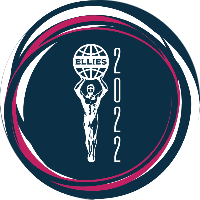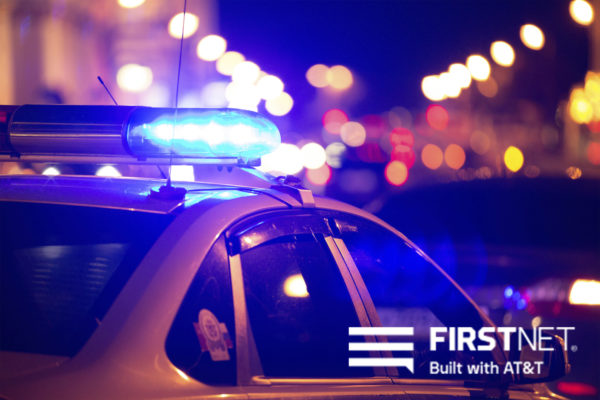Emergency Phones

Kings III Emergency Pool Phones
You would be surprised at how often our pool phones are used for non-pool-related emergencies. Drowning injuries and near-drownings aside, to add on, our outdoor help phones are used for a variety of emergency calls such as children needing assistance, health emergencies, domestic disputes, burglary, theft, adverse weather, and more.
Our emergency phones are best in class, with a rugged, weather-resistant design built to hold up outdoors and provide a reliable means to summon help in any outdoor emergency. Landline and cellular options are available.
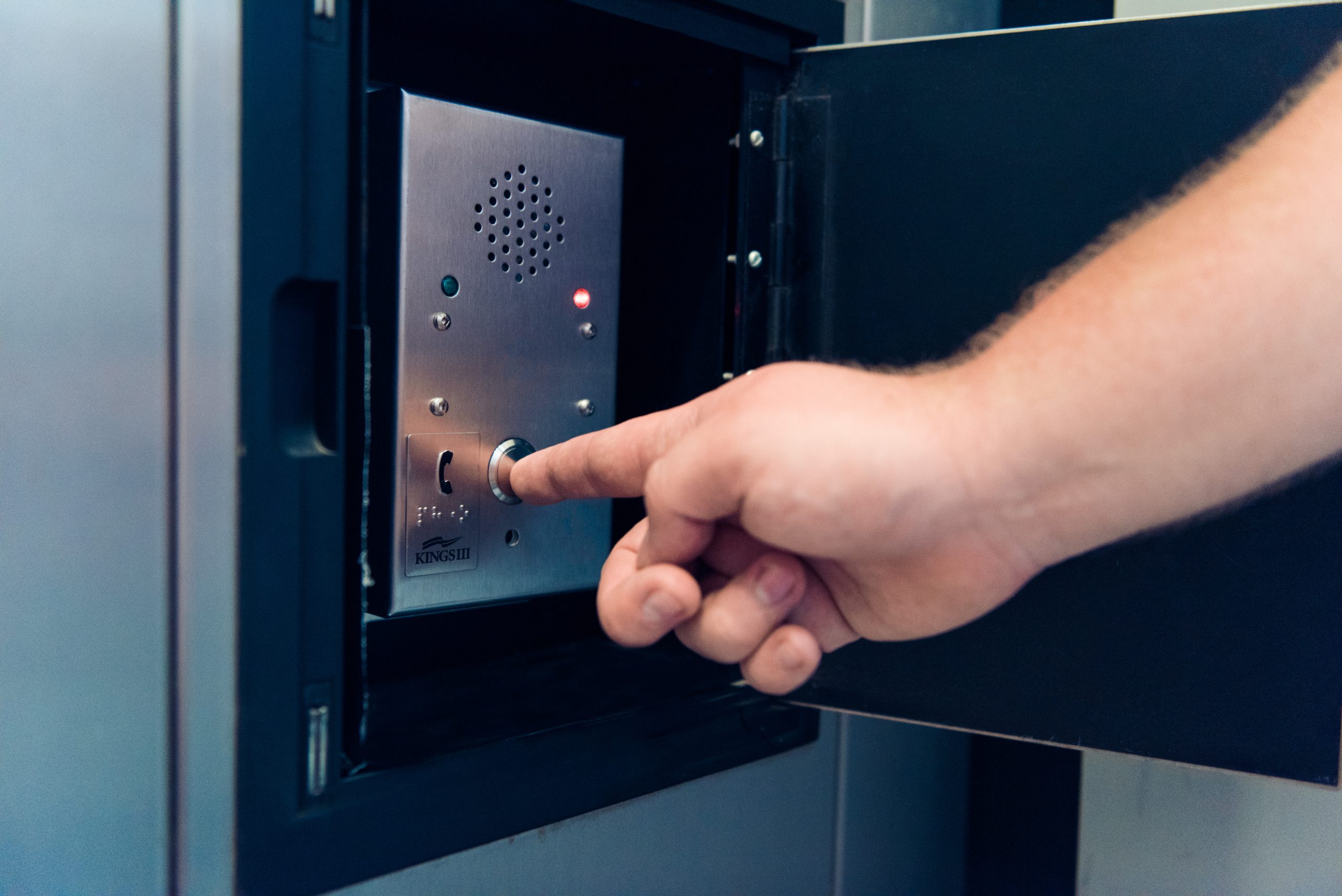
Kings III Elevator Help Phones
With 18 billion elevator trips in the U.S. annually, an elevator malfunctioning is inevitable. Getting stuck in an elevator is troublesome and, to add onto that, at times it’s even unsafe, often amplifying or inducing other health conditions, which makes who is answering these calls important.
Kings III offers a range of top-of-the-line elevator help phones to fit the needs of each unique elevator system and that can be reliable in the negative situations mentioned above.
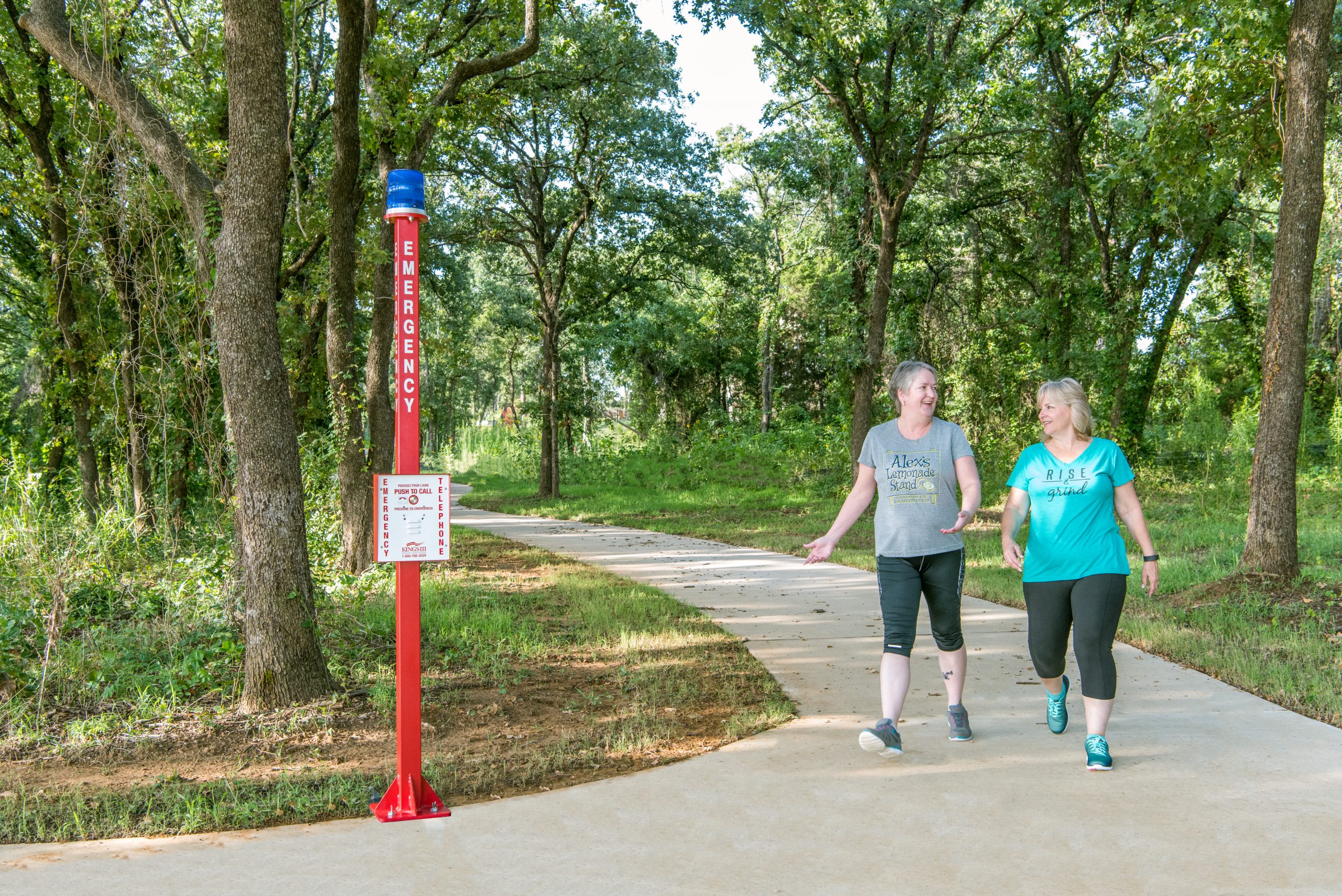
Kings III Emergency Help Phones
We offer emergency help phones, both blue light and stand-alone, fashioned to suit any vulnerable areas on your property. In addition to pools and elevators, property managers will add on to their safety portfolios, and Kings III help phones are often employed in campus settings, parking lots and garages, stairwells, fitness centers, and areas of refuge.
All emergency phones are designed, assembled, and supported in the USA. We pride ourselves on being at the forefront of code and technology changes and designing equipment that stands the test of time against other emergency phones. Landline and cellular options are available.

110K+
PHONES MONITORED
98%
CUSTOMER RETENTION RATE
30+
YEARS
All-Inclusive Solution
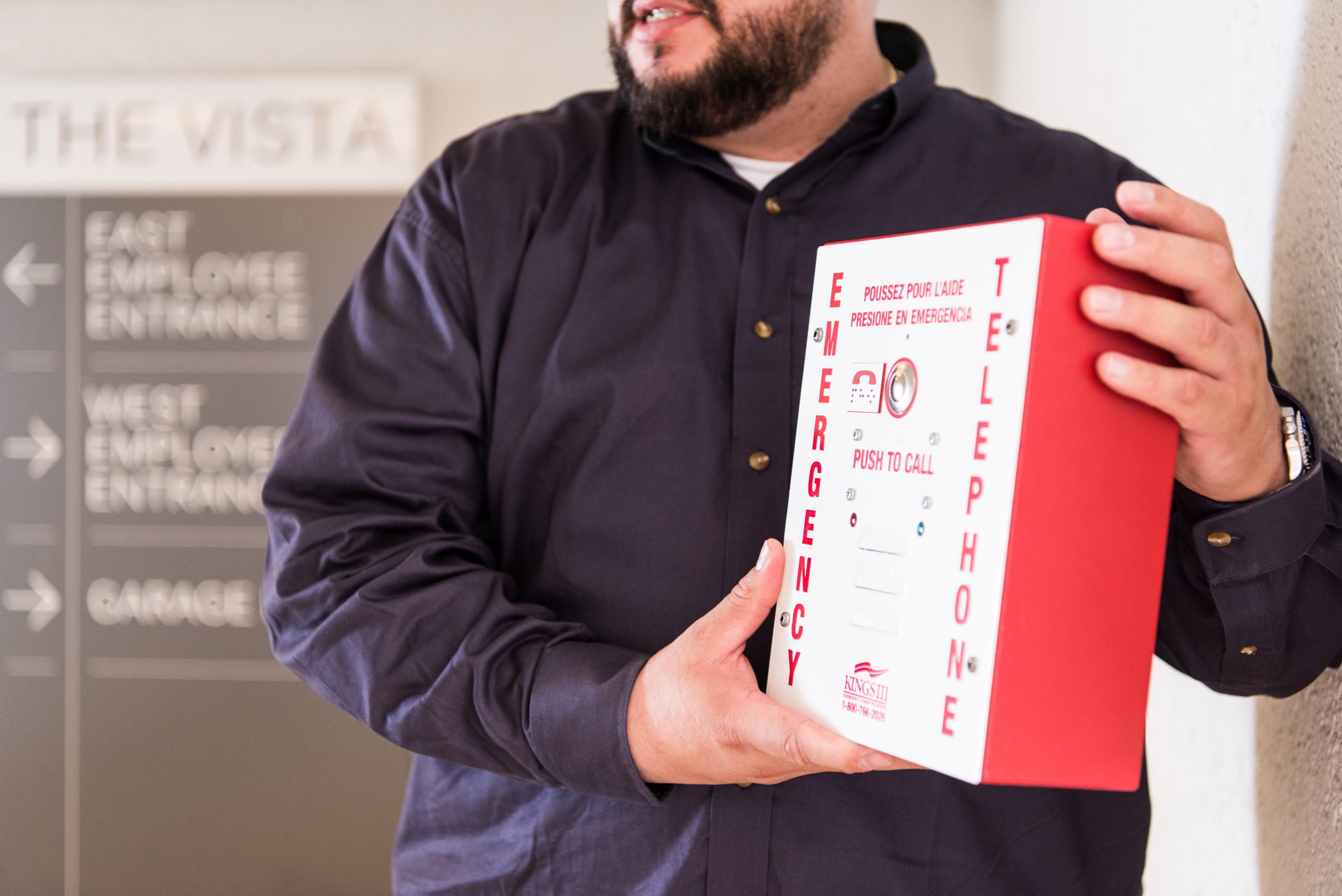
Kings III Equipment
With Kings III, all emergency phone equipment is included as part of our all-inclusive solution- an add at no extra cost.
As code requirements tighten, it becomes increasingly important to trust an emergency phone expert and their product when choosing among the myriad of solutions available. Our help phones are designed, assembled, and supported in the USA. We design our emergency phones and equipment with code compliance and caller experience in mind, staying at the forefront of code and technology changes.

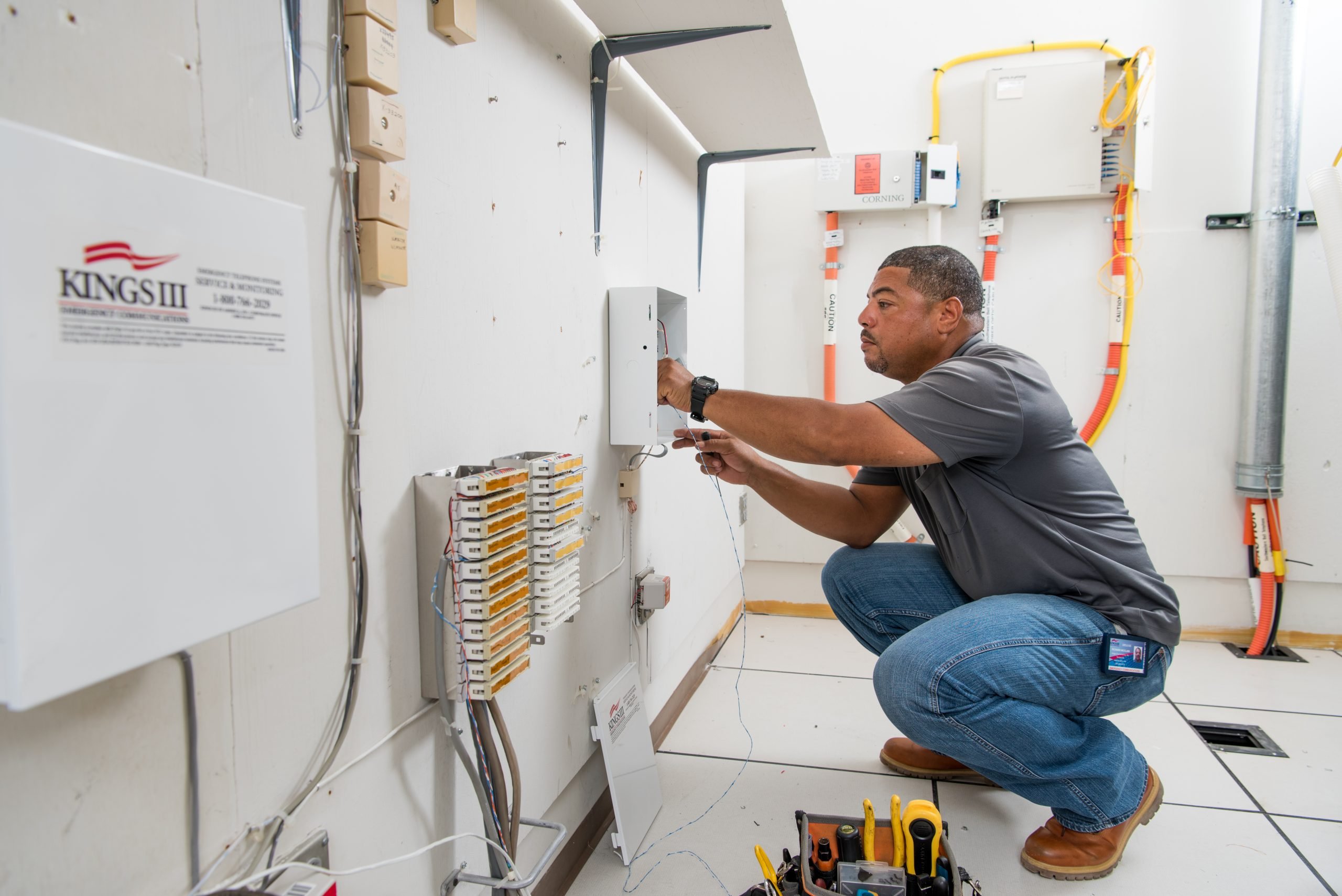
Code Compliant Installation
Our all-inclusive emergency monitoring service includes not only the product but also the installation of equipment, with guaranteed code compliance of initial installation.
At Kings III, we make it a priority to streamline the system installation process for your ease and convenience, gathering as much information upfront to expedite job scheduling and completion. Our goal is to make working with us as hands-off as possible so that it does not interfere with your existing schedule or add additional responsibilities.

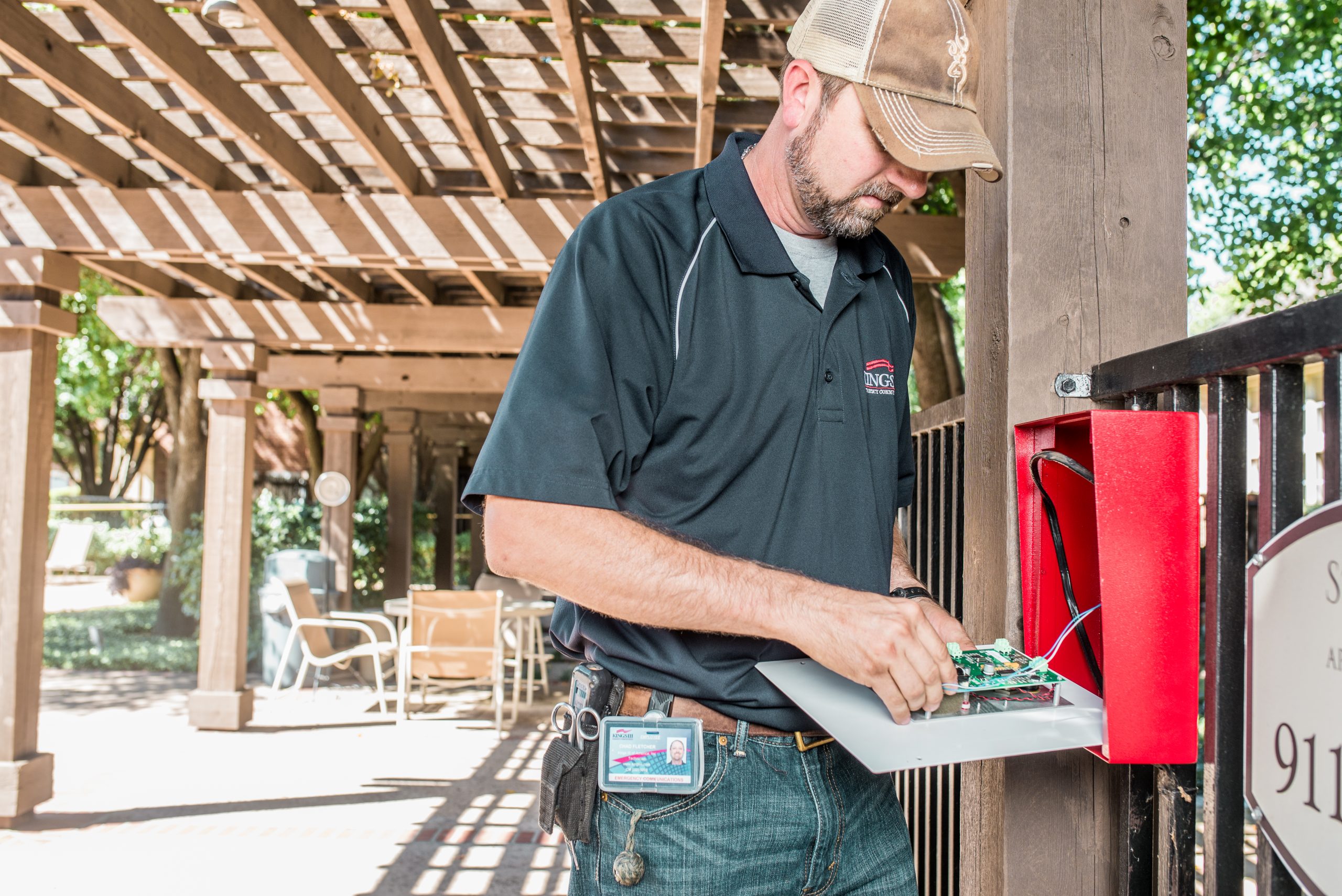
Lifetime Maintenance + Auto Testing
In a perfect world, everything would run smoothly all the time. Unfortunately, we live in the real world, and problems do arise from time to time. The good news is, because we build our own product and equipment for the sole purpose of increased reliability and longer life expectancy, we rarely see issues with Kings III phone equipment itself.
We can often troubleshoot phones remotely and repair and when we cannot, we’ll send a technician to remedy the issue. To add to our maintenance package, we also offer, upon request, a product auto testing feature that tests your emergency phone system for dial tone and power.

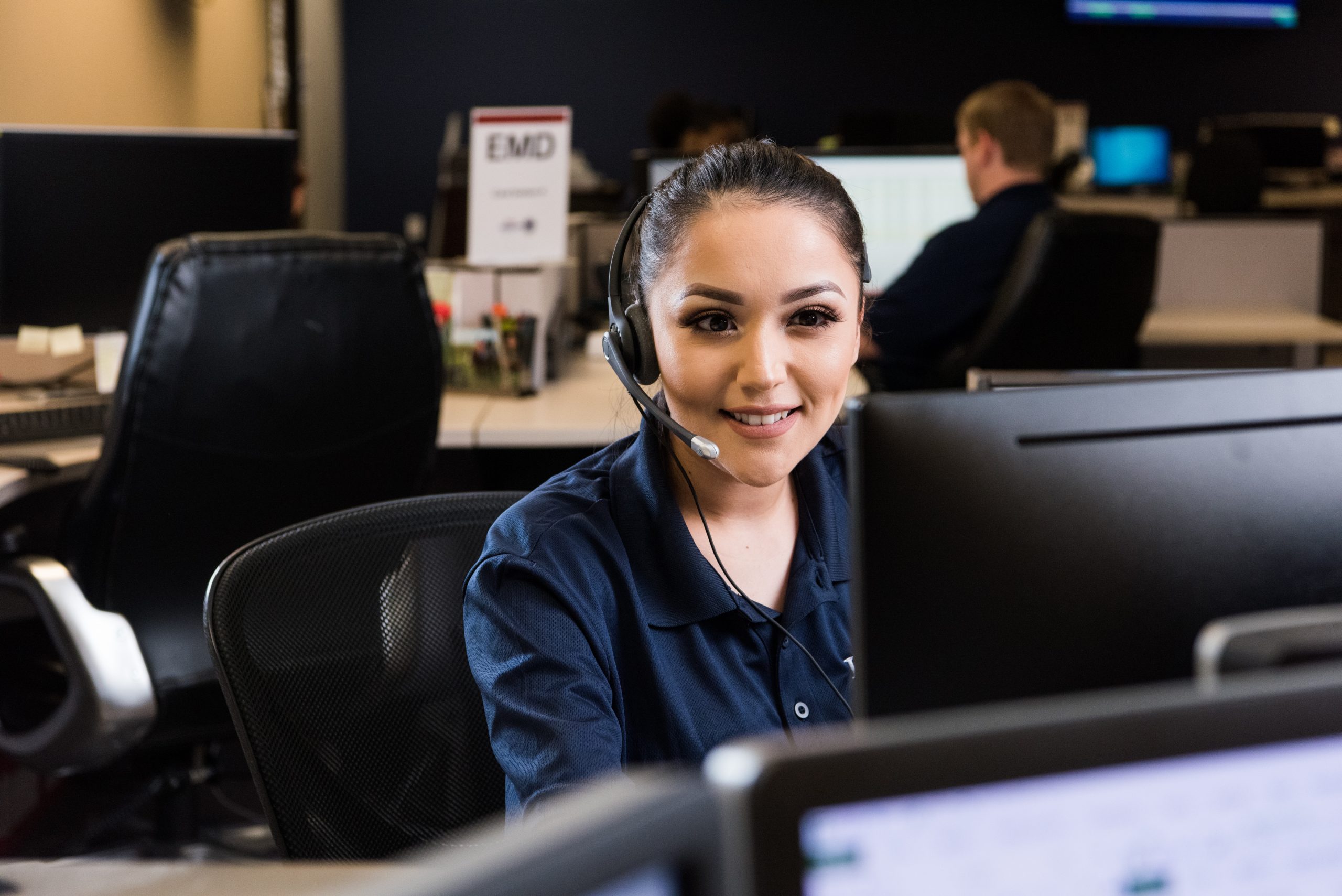
24/7/365 Emergency Monitoring
The most important aspect of our all-inclusive service spans far beyond our product. It includes 24/7/365 professional emergency phone monitoring via our ETL Listed Central Station. Looking for bilingual services? We can do you one (or multiple) better– our emergency response is offered in 175+ different languages.
Our operators’ knowledge of dispatch protocol and coordinating emergency services coupled with their level of training is what sets us apart from any other answering service or system. Your tenants, employees, and visitors will connect to an Advanced Emergency Medical Dispatcher—a certification representing best-in-class responders with the ability to provide pre-arrival medical instruction when seconds count. Other answering services, even generally 911 centers, do not hold this same requirement.
What should you look for in an answering service? See Our Recommended Minimum Standards for Emergency Phone Monitoring

Get More Details on Our Phones
COST CUTTING
TECHNOLOGY
CELLULAR
VOIP
CABVIEW™
VIDEO MONITORING
FIRSTNET READY®
PHONES
Prioritize Your Emergency Call
Introducing the 1st AT&T FirstNet® Capable Emergency Phones
After a rigorous review process, Kings III’s emergency phone host control panel used in commercial and multifamily buildings across the US, is now FirstNet Ready® and ready for use on the FirstNet® high-speed broadband communications platform. Currently being the sole elevator and pool emergency phone equipment provider capable of accessing the communications fast lane on the dedicated network, we’re looking at setting a new precedent for life safety standards at public buildings across the country.
FirstNet and the FirstNet logo are registered trademarks of the First Responder Network Authority. All other marks are the property of their respective owners.
Emergency Phone and Call Center FAQs
- Where do elevator phones call?
This varies by answering service, but at Kings III, all calls will go to our Emergency Dispatch Center (EDC), where live operators are available 24 hours a day, 7 days a week. Our operators assess the needs of the passengers and act accordingly, following a call list designated by you or dispatching emergency services as needed. See our recommended minimum standards for emergency elevator phone monitoring here.
Looking for bilingual speakers? Our center can answer any call placed in over 175 languages.
Even if no medical attention is required but a passenger is scared or anxious, the operator will remain on the line to offer continual assurance until they are calmed or released. We will even go as far as notifying loved ones or employers of the situation on behalf of a caller. This is an invaluable benefit add that goes well beyond the expectations of a typical answering service. -
What happens when you press the call button on an elevator?
If using a code-compliant system, when pushed, a call button in an elevator should initiate a phone call in which the elevator passenger can connect and speak to someone who is designated to answer calls placed from the elevator cab. Who is doing the answering will vary by the answering service utilized and the system that is in place.
-
Are emergency phones required in elevators?
Yes– an emergency elevator phone is required in any public elevator in the United States. You can visit our code database to determine more specific system requirements by state, including what is required of the answering service that responds to emergency calls.
-
Do elevator phones require an answering center with bilingual speakers?
No, but we highly recommend dispatchers be more than bilingual- a reliable dispatch center should have speakers of as many languages as possible as part of their answering service.
-
How do elevator emergency phones work?
Simply put, these phones allow for people within an elevator cab who may need help to connect to someone (typically an answering service) outside of the elevator via a phone line connection, whether it be cellular or landline. See how to test for a compliant phone here.
- What are blue light emergency phones?
Blue light emergency phones are typically in public areas, such as parking lots, sidewalks, and campuses, but they can be used in any location. They have the same functionality as other emergency phones but, rather than using a wall mount, these phones are marked by a tower and lights to make them distinguishable and easy to find. (Kings III offers blue as well as several other color options.) It’s important for your property’s safety that you identify all key areas on your premises that may require additional safety systems, answering service, and assistance beyond relying on tenants’ cell phones. Any common area should be considered as a potential area to add an emergency communications device.


